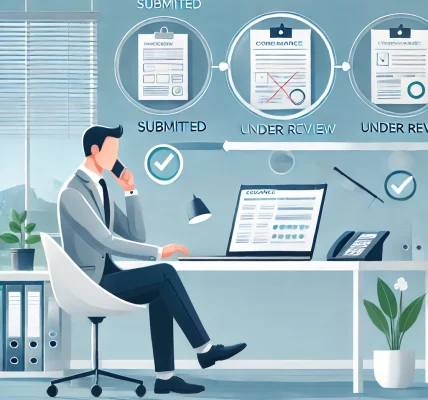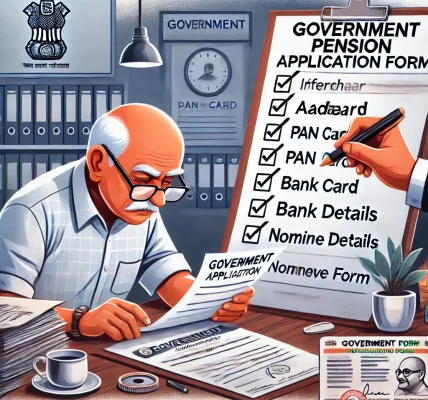Introduction
Medical expenses are an unavoidable part of life, and health insurance helps mitigate these costs. However, the process of filing a health insurance claim can be complex, particularly when medical bills come into play. Many policyholders face difficulties in getting their claims approved due to errors, misinterpretations, or missing documentation related to medical bills.
This blog explores how medical bills impact your health insurance claim process, providing key insights into best practices, potential pitfalls, and ways to ensure a smooth claim settlement.
Understanding the Role of Medical Bills in Health Insurance Claims
Medical bills serve as critical proof of treatment expenses when filing an insurance claim. Insurance companies rely on these bills to verify the authenticity of claims and determine reimbursement amounts. The accuracy, completeness, and legitimacy of medical bills directly influence the success of your claim.
Key Elements of a Medical Bill
A medical bill typically includes:
- Patient details: Name, age, and insurance information.
- Hospital/Provider details: Name, address, and registration details.
- Treatment information: Diagnosis, procedures, medications, and services provided.
- Breakdown of costs: Charges for consultation, hospitalization, surgery, diagnostic tests, and medications.
- Payment status: Whether the bill has been paid in full, partially, or remains unpaid.
Any missing or incorrect details in the bill can lead to claim rejection or delays.
Common Ways Medical Bills Affect Insurance Claims
1. Errors in Billing Can Lead to Claim Rejections
Mistakes such as incorrect patient information, wrong diagnosis codes, duplicate charges, or unlisted services can result in claim denials. Even minor errors, like a mismatch in the spelling of a name, can cause complications.
How to Avoid:
- Always verify your personal details on medical bills before submitting them.
- Cross-check billing items with your treatment records.
- Request corrections from the healthcare provider if errors are found.
2. Uncovered Expenses May Lead to Out-of-Pocket Costs
Not all medical expenses are covered by health insurance policies. Certain procedures, cosmetic treatments, or experimental therapies may be excluded from coverage.
How to Avoid:
- Review your policy’s inclusions and exclusions before seeking treatment.
- Consult with your insurer regarding coverage for specific procedures.
- Obtain pre-authorization for costly treatments to avoid claim denials.
3. Delayed or Unsubmitted Bills Can Result in Claim Denials
Insurance companies set deadlines for claim submission, and failure to provide bills within the stipulated time can lead to claim rejection.
How to Avoid:
- Keep track of all medical bills and ensure they are submitted on time.
- Digitally store copies of your bills for easy retrieval.
- If facing a delay, communicate with your insurer and request an extension.
4. Insufficient Documentation Leads to Processing Delays
A claim may require additional documentation, such as prescriptions, diagnostic reports, discharge summaries, and payment receipts. Missing documents can slow down the approval process.
How to Avoid:
- Collect all necessary documents before filing a claim.
- Confirm with your insurer if additional documents are needed.
- Maintain an organized file with all medical records.
5. Fraudulent or Inflated Medical Bills Can Cause Legal Complications
Submitting fraudulent, exaggerated, or manipulated bills can lead to legal action against the claimant. Insurance companies have strict verification processes to detect fraud.
How to Avoid:
- Ensure bills are genuine and match the actual treatment received.
- Avoid engaging with fraudulent third-party claim facilitators.
- If discrepancies are noticed, report them immediately to your insurer.
Tips to Ensure a Smooth Health Insurance Claim Process
- Read Your Policy Carefully
- Understand the terms and conditions, coverage limits, exclusions, and claim procedures.
- Check if pre-authorization is required for specific treatments.
- Keep a Record of All Medical Expenses
- Organize your medical bills and receipts chronologically.
- Maintain both physical and digital copies for reference.
- Communicate with Your Insurance Provider
- Clarify doubts regarding coverage, documentation, and the claims process.
- Seek assistance from your insurer’s customer service in case of complications.
- Verify Billing Accuracy Before Submission
- Cross-check details with your medical provider.
- Rectify any errors before submitting claims to the insurer.
- Submit Claims Promptly
- Avoid unnecessary delays in claim submission.
- Ensure all required documents are attached to prevent follow-ups.
- Use Cashless Facilities When Available
- Many insurers have tie-ups with hospitals for cashless treatments.
- Using a network hospital reduces paperwork and out-of-pocket expenses.
Conclusion
Medical bills play a crucial role in the health insurance claim process, influencing approval, reimbursement, and overall settlement time. Understanding how medical billing works, ensuring accuracy, and adhering to the insurer’s claim procedures can help policyholders avoid claim denials and legal complications.



